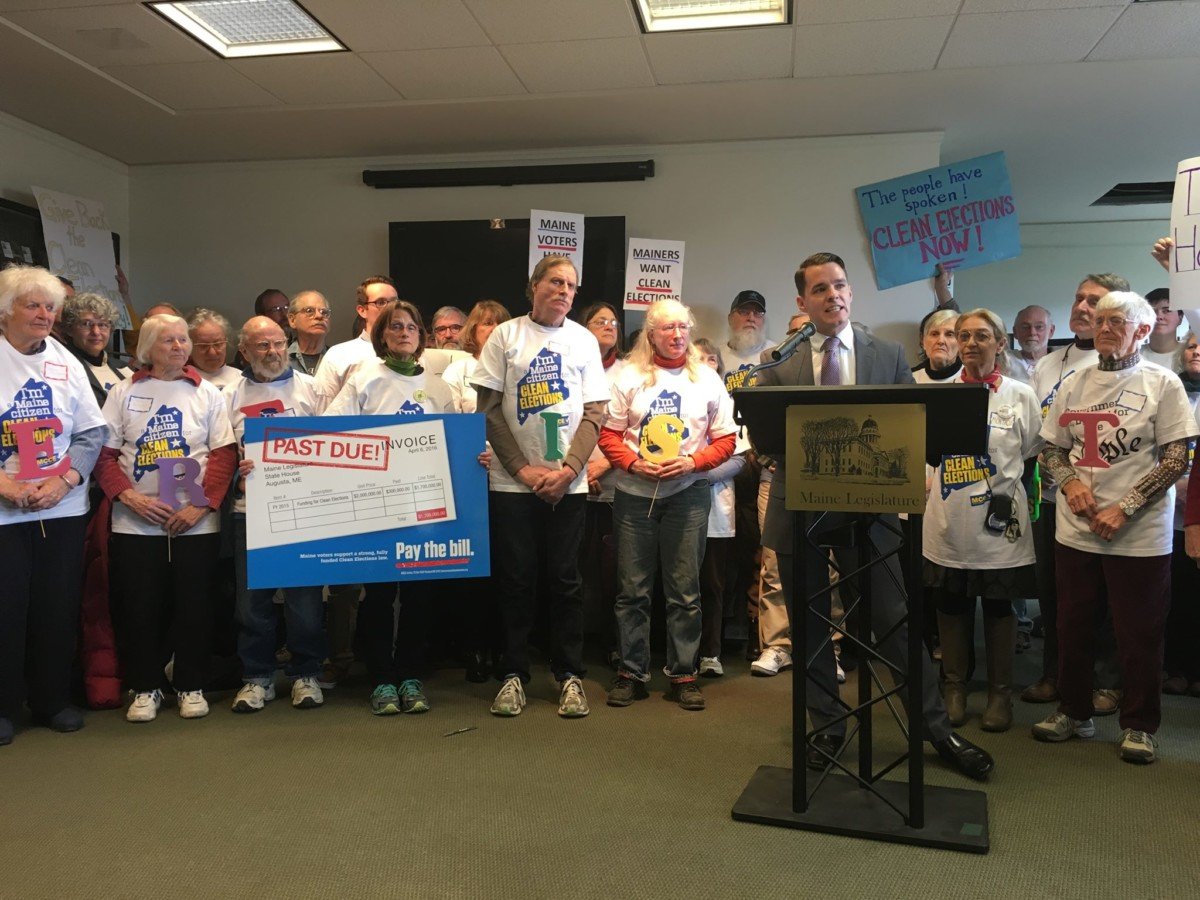Meetings of the Maine Commission on Governmental Ethics and Election Practices do not usually give way to moments of high drama. But supporters of public financing breathed a deep sigh of relief on Thursday after the bipartisan commission’s four members ruled to release $3.5 million in previously held-up funds to 120 candidates in races for the state House, Senate, and Governor.
This decision was only the latest chapter in a long-running partisan saga about Maine’s Clean Election Program. First passed in 1996 by citizen initiative, the voluntary program provides public funds to candidates for governor and state Legislature if they raise a threshold amount in $5 donations. In exchange for public financing, participants agree to certain restrictions, including spending limits and a prohibition on using other funds. In addition, qualifying candidates in general elections against privately financed rivals can receive supplemental funding provided they continue to collect small donations.
Public financing regimes like Maine’s are critical engines for democratic participation in the age of super PACs and dark money. They lower barriers to entry for candidates who may not have access to large pools of money and encourage candidates to spend time courting ordinary citizens instead of behind-closed-doors dialing for dollars from well-heeled special interests.
The fight over the $3.5 million stemmed from — believe it or not — a typographical error in Maine’s biennial budget passed last summer. The mistake left the commission arguing that it was unable to distribute funds during the 2019 fiscal year, which began on July 1. To what degree legislators were aware of the blunder is anyone’s guess. Discussing the error this June, Republican State Representative Jeff Timberlake conceded that he was aware of the problem but kept quiet. “Our caucus has never been a big proponent of Clean Elections,” he acknowledged. The Legislature reconvened for a special session this summer to address the problem, but two proposals — one from Democrats, another from Republicans — were both rejected amid partisan gridlock.
The resolution of the budget issue comes on the heels of an August 1 decision of the Maine Superior Court to release public funds that were due to candidates earlier this year. This spring, Governor Paul LePage (pictured above), who is term-limited from running for re-election, refused to sign a routine order to carry forward more than $1 million in unused Clean Election funds from a prior fiscal year to cover a budgeting shortfall.
Maine Superior Court Judge William Stokes put the matter to rest when he ordered the state to release the money. Stokes concluded a gubernatorial order was not even necessary — the Clean Election Act itself required that the funds be transferred. Failing to move the funds, he wrote, would “frustrate the very purpose” of the act. LePage opted not to appeal and announced last Tuesday that he would comply with the ruling.
But that ruling only covered supplemental funds that were due to candidates through June 30 — it did not address the typo holding up crucial funds as the clock ticks down to Election Day.
Judge Stokes’s decision apparently loomed large in the commission’s discussions, however. According to a memo sent Wednesday by the commission’s executive director and general counsel, the budget error did not reflect the Legislature’s intent. And, after analyzing other sources, including the August 1 opinion, the commission’s staff “concluded that no legislative action is required in order for the commission to make payments to qualifying [Maine Clean Election Act] candidates in this fiscal year.” In other words, the commission can act on its own to distribute funds to candidates.
These two developments are critical for sustaining Maine’s Clean Election program, not only for this election cycle, but also in the years to come. Public financing programs can’t operate if their routine operations are thwarted by the caprice of politicians. And candidates will never enroll in them if they know their funds can be delayed or even stopped. The continuation of Maine’s Clean Election program reflects the will of the citizens who enacted it.
Media that fights fascism
Truthout is funded almost entirely by readers — that’s why we can speak truth to power and cut against the mainstream narrative. But independent journalists at Truthout face mounting political repression under Trump.
We rely on your support to survive McCarthyist censorship. Please make a tax-deductible one-time or monthly donation.
